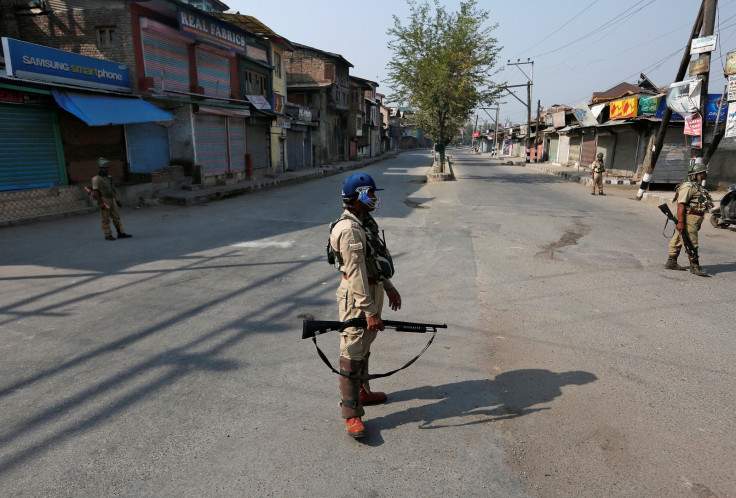Indians mock Narendra Modi's 'war on terror' as Kashmir dispute rages
Srinagar residents say India's 'propaganda' is aim to win votes in upcoming local elections

India's surprise raids in Pakistan-administered Kashmir have raised fears of conflict between India and Pakistan for the first time since 2003. As many as 20,000 residents from villages in Jammu have been evacuated while 200,000 have left Punjab, which also shares a border with Pakistan.
But in Srinagar, the capital of the state of Jammu and Kashmir, residents told IBTimes UK that local people "ridicule" the Indian government's anti-terror campaign. "They say this is propaganda by the government to drum up international opinion and fool the gullible people of India," said an editor at newspaper Greater Kashmir, who declined to give his name.
He also alleged that the Narendra Modi administration is widely publicising its raids in Pakistani-administered Kashmir with an eye on the upcoming elections in Uttar Pradesh, a major state in northern India.
Another Kashmir resident, who also wanted to remain anonymous, echoed that view and argued that the strikes had little impact on the city.
Meanwhile, Pawan Kotwal, divisional commissioner of Jammu region, sent a single-line message when asked by IBTimes UK: "Situation in Jammu is normal," he said.
The Indian army crossed the de facto Line of Control (LoC) on 28 September and returned to their bases before dawn. India said it was a major counter-terror operation to destroy several positions used as "terror launch-pads" by potential infiltrators. But Pakistan claims the incident was little more than a cross-border skirmish.
Tensions between the nuclear-armed rivals quickly accelerated after India's pre-dawn raid. India and Pakistan have fought three bitter wars since winning independence from Britain in 1947, two of them directly linked to the territorial dispute over Kashmir.
Retired Brigadier Rumel Dahiya, deputy director general of the New Delhi-based think-tank Institute for Defence Studies and Analyses, told IBTimes UK that he did not think that either India or Pakistan wanted to escalate the dispute into an all-out conflict.
"I don't see this incident developing into any serious issue or a war. Things will cool down if Pakistan takes the sobering lesson from this counter-terror operation. I suppose the Pakistani side should behave in a much better manner," said Dahiya.
But military forces, the army establishment and intelligence agencies positioned in the border areas of both countries have been kept on high alert over the situation as the exchange of words on both sides continues.
Following a high level cabinet meeting on Friday, Pakistan's Prime Minister Nawaz Sharif had stern words over Kashmir that highlighted how deeply the historical animosity between Pakistan and India runs.
"We will defend our homeland against any aggression. The entire nation is standing shoulder to shoulder with our armed forces. Kashmir is the unfinished agenda of Partition, which cannot be wished away. The Indian atrocities cannot suppress the passions of the Kashmiri people."
© Copyright IBTimes 2024. All rights reserved.







